' ' '
Artist Spotlight: Sally Park Rubin
For this spotlight, we welcome the author of the ambitious period piece ‘Kate on the Range’; Sally Park Rubin.
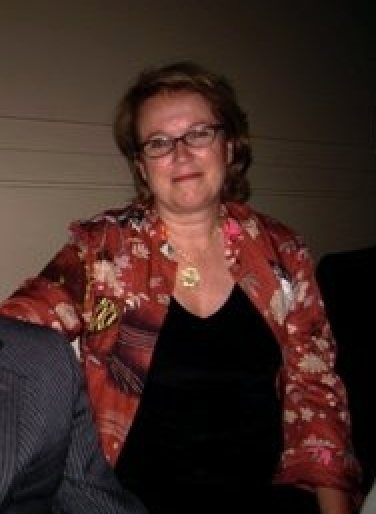
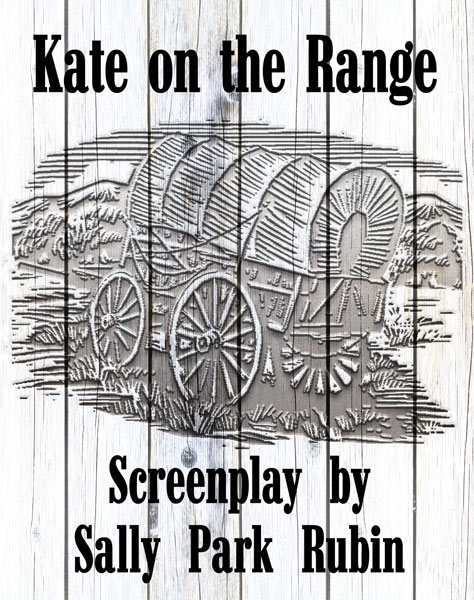
Tell us a little about yourself, growing up and your passions.
Okay, well, let me start with: I am a female and I was born in the mid-1950’s. Although I was the first female in my family to graduate from college, the expectation by my dad was that my higher education would simply make me a fine well-educated appendage to a corporate husband. Subtext: Pleasant hostess. I could see from my mother’s boredom with her life, that that was not the life for me.
When I was in 4th and 5th grade (11 is a magical year for girls and this liberation is, thankfully, re-achieved with menopause) when I started to get serious about making my own films. I wrote little plays, cast my classmates, produced and directed them. A field trip to Thomas Edison’s studio in Edison, New Jersey piqued my interest in fimmaking. Edison was instrumental in the early development of film cameras. His film studio—The Black Maria—made a huge impression on me.
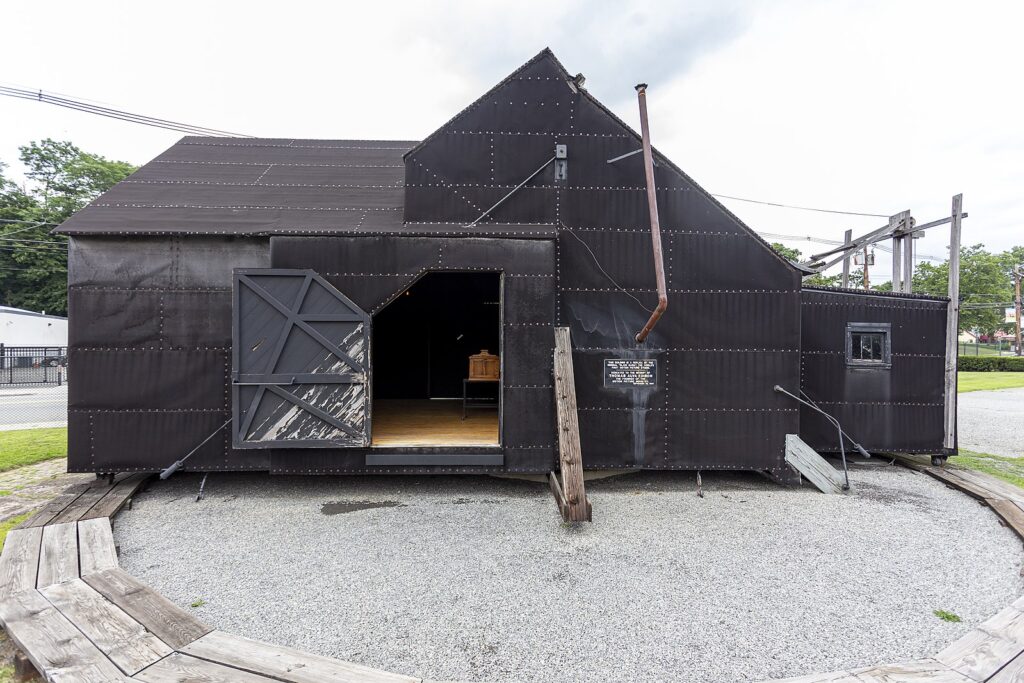
The studio was built on tires and was rotated with the movement of the sun to allow the sun to come through the roof to illuminate the actors being filmed inside the studio. This event coincided with a friend of my mother’s giving me a “learn to paint” kit. The scene in the painting was a green valley with light yellow-green for the light side of the bushes and dark blue-green for the shadow side of them. Seeing the world in light and shadow, literally, changed how I see.
I sold Christmas cards door to door, so I could earn a Super8 film camera. I achieved that goal and made two films in my garage with friends. But, they were backlit and my film career aspirations were dashed for decades.
We tend to, I think, internalize everything we’ve experienced. So, no good visual impression goes to waste. A visit to see Marat Sade, the play, in New York City, again grabbed my visual senses and also perked a, then, subliminal interest in the historic conversation in which we all participate. The story was about the Marquis de Sade who was put in prison…a kind of One Flew Over the Cuckoo’s Nest environment [Director: Milos Foreman]. It was a treatise on the oppression of society and individual freedom. The staging was taken from the famous painting—Marat Assassinated—by Jacques-Louis David. That painting hangs today in the Royal Museum of Fine Arts in Belgium. I can still see that actor, sitting in and speaking from that illuminated tub in the middle of a dark stage. Light and shadow, once again.
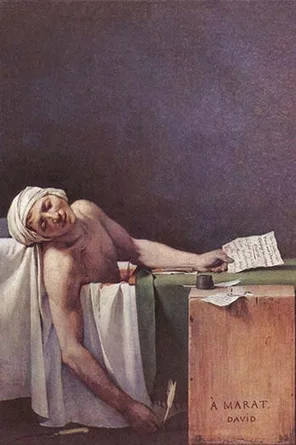
Did you have any specific influences growing up that lead you towards the film industry?
My parents had a 33 rpm record of The Sound of Music which I would listen to ad nauseam, singing all the songs. It kept me company on rainy days. I grew up in Northern New Jersey and went to plays on Broadway. One of the first plays I attended was Fiddler on the Roof with Zero Mostel and where actor—Austin Pendleton—originated the role of Motel. Recently, Austin, now an octogenarian with a career in show business spanning sixty years, read for a zoom presentation of my stageplay, Ascension Point (aka Birdwave). It’s just thrilling to me now, having seen him at age ten and knowing him now in his 80’s, to find myself participating in the historical tradition of theatrical arts which is the root of film. It is a great tradition of storytelling.
In high school, I was a big fan of Kubrick’s films. Still am, actually. I saw A Clockwork Orange, an adaptation of Anthony Burgess’ novel of the same name. I don’t know how many times I saw it. In those days, it was $3 to see a film and you could stay in the theatre all day to catch it again. I was fascinated by the dark cultural relevance of that film. Even though many of the scenes were extremely disturbing, everything about the film…from the costumes to the performances, the set design, cinematography…everything was a work of art.
As weird as it sounds (probably because it’s so out-dated now), that film gave my friends and me identification. Hormones are one of life’s big players on the grand stage of one’s existence, particularly in one’s teenage years. And, the subtext of that film was hormone-induced rage against the Establishment. Young artists need identification and encouragement. We need luck, too. All these things are essential ingredients for making Art.
I’m crazy about The Coen Brothers’ films. I’ve seen them all. I even took a course about their films at Stanford. But, I think that, probably the biggest influence on me is Werner Herzog. His work is infused with questions. And, his attention to how Nature affects our rambling non-linear lives as humans is always so on point. So, his influence on me is infused in Kate on the Range.
I once wrote Director Sally Potter (Orlando, Yes) for advice. She said, “Just keep going.” I love Jane Campion’s brilliant artistry, her lighting, her attention to the violence and cruelty of man. Conversely, I love Greta Gerwig (Lady Bird)…her wit, her sensibilities, her quirkiness.
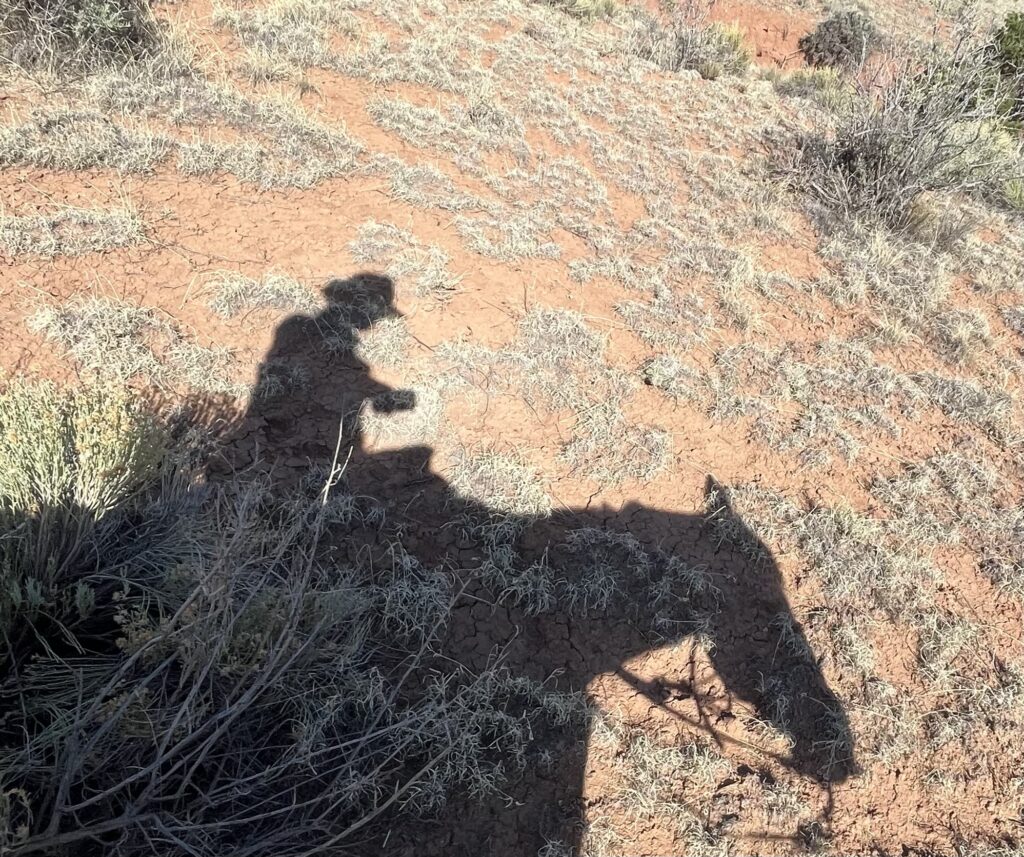
What are you currently working on?
I always have several writing projects at various stages. But, in terms of getting something to an audience, I’m currently working on a half-hour TV show I have developed with my son, Sam. It’s for a child audience…kind of Blues Clues meets Mr. Rogers’ Neighborhood…because I believe that things need to be slowed down for children wherever we can create those circumstances…just to slow life down, to give kids time to daydream. Daydreams are the meditation of childhood. I have a stageplay—Ascension Point (aka Birdwave)—a Boomer play, about the unexpected reunion of a college professor on a bird-watching expedition with a former student, now retired, with whom he’d had a torrid love affair decades before in the era of Free Love. And, finally, as projects go, I’m at the point where I’m figuring out how to get Kate on the Range made into a film.
What was the most important thing for this script to achieve from a narrative and character standpoint?
Time, Place and Characters were foremost on my mind for this script. The seeds for this story were planted twenty years ago. My son had a classmate in Kindergarten whose great-grandmother was a wagon train cook and that idea grabbed me. Another character came to me via a lady who told me about her grandmother who was a pony rider in a traveling rodeo show out West. Again, another working woman in the Wild West whose career grabbed my imagination. Also, in the USA in the early 1830’s, there were only two states in which women had inheritance rights. In most states, if a woman’s spouse were to die, she was shit out of luck. So, the intersection of these characters and events and time in history were the impetus for this story. And the proverbial gun is also a character.
To prepare for this writing, among many films, I watched The Outlaw Josie Wales with Clint Eastwood. Even though it represented toxic libertarianism, it was valid for that day. The Second Amendment has been terribly distorted. The argument for it was in the formation of a militia. The intent was that a standing army was very small. And, as settlers, they needed to hunt for food. And guns were a tool for that. I could go on about this, but I won’t at the moment. I’m working on something about this.
Also, I think, harking back to Herzog, the human struggle of our relationship to the environment is something that is, I think, the struggle of mankind. It’s the basis for all the myths throughout time, including now…the big conversation right now being the impending doom of the shrinking of the environmental space. I think there is something set in our DNA, related to navigating this duality. In Kate on the Range, a motley group of strangers travel together into the wilderness on foot. Even after so many miles and so many life and death encounters together, do they really know one another?
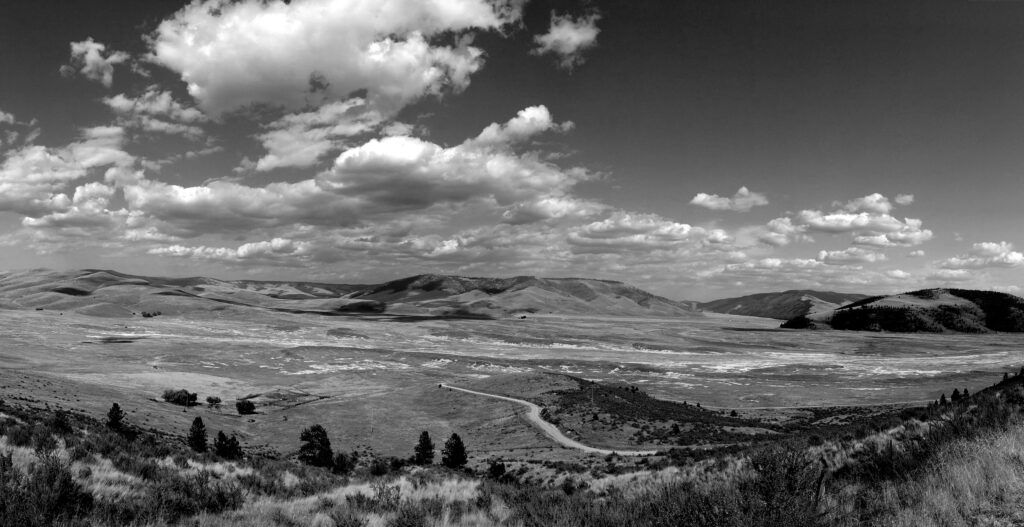
What makes a film interesting for you? What are three qualities that you look for in a movie?
Character depth…characters I can relate to. Humor, Unexpected Plot Twists, Resolution in the end. Lighting. …script, direction, acting. If it doesn’t have a good story, forget it. Cinematography… Weirdness and uneasiness… Composition of the shot. It’s film, we’re using our eyes. So, yeah…all these things.
What project helped you launch your career?
I did a webseries called The Rocket Family Chronicles, about a family with a teenager with autism. I was a bit ahead of the curve regarding shows with a character with autism. But, I let The Autism Channel® distribute it. I probably should have tried Netflix or the, at the time, fledgling Amazon Studios. In any case, it was a huge hit in the autism community. I was particularly moved when Chris Neary of NPR’s “On the Media” interviewed the producers at The Autism Channel® about the channel and, he told me, “All anyone wanted to talk about was The Rocket Family Chronicles.” He quoted a twelve year old boy with autism whom he had interviewed. The boy, inspired by Sam Rubin, an actor with autism, who played Rocket, said, “I didn’t know I could do that!” Chris asked him, “Would you like to do that?” “Yes!” So, I think that the bottom line is that you never know who is going to be touched by your efforts. And if one kid can have a bigger idea of what he might be able to become in his life, that’s extremely satisfying.
What are you most proud of? Describe your biggest accomplishment to date.
Of course, Motherhood. Nothing has informed my writing more than being a parent. When you become a parent, you can’t avoid the story of the world…what came before, what’s happening now, and what may come after you’ve expired. It’s not necessarily a given, but empathy shows up. Life matters. Everyone was a child at one point. Childhood is such a special thing. Even the worst psycho killer, the biggest saint…childhood—our experience of it, our ideas about it—is something human that binds us together. We wax poetic about our childhoods or we suffer the PTSD of it and spend out adult lives figuring out how to finally achieve that promise of the pursuit of happiness.
As a screenwriter, what is the most important aspect of building a character?
I spend a fair amount of time on back story. This way, when I hit a snag in the forward motion of the events, I know how the character will react. It always surprises me, just like human behavior shouldn’t surprise us, but always does. I do a really deep dive into their personal stories, even if nothing of that comes into the writing of the screenplay.
What are your ambitions for your writing career?
I think the question is: Does what I (as writer) think matter to someone else? It’s a bit like the character question. You have be able to relate to the characters. Everything in dramatic literature is relationship and conflict (not that everyone is fighting, but life is full of conflict and we’re all fighting for something…to win the love of someone, to get the job…. You get the point.). I turned two of my screenplays into novellas. One of them—White Rain—has consistently gotten five stars and great reviews on Amazon. I have a screenplay for it, but haven’t pushed to get it seen. (Yet.) At this point, I’m trying not to start new projects. I want to get some of these scripts to film and stage. I’ve never been busier.
What advice would you give to someone who is aspiring to enter the film industry, especially as a screenwriter?
Find a writer’s group where the writers are doing the work. Meet regularly. Learn from each other. Take the critique. People think that writing is something anyone can do. If I had a nickel for every person who’s said, “I’m writing a book.” Or “I have an idea for a screenplay” or even, “I’m writing a screenplay,” I’d be stockpiling a lot of nickels. Most people don’t get too far in the writing process. It really is a discipline. Also, it costs money and time to write anything because you still have to live while you are writing your work. So, I’d say, budget about 30K/per writing project because, even if you aren’t getting paid to write, your time has value.
Where can everyone keep up with you to learn more?
For this project, I just stripped my webpage: http://www.sallyparkrubin.com. Hopefully, I’ll get a few things up there by the time someone looks at this.